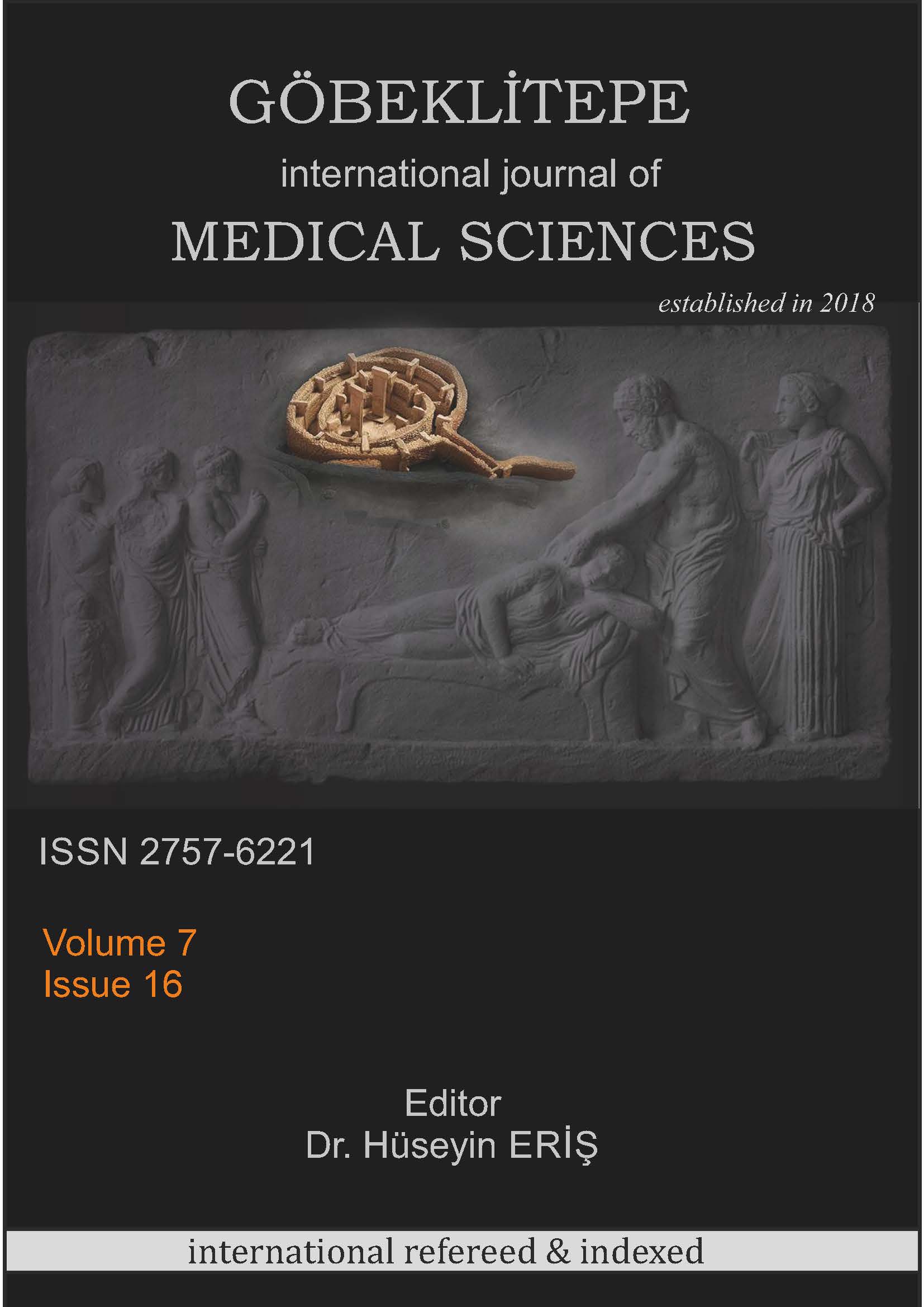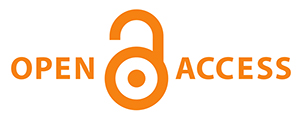Evaluation of the Effect of Chronic Fatigue Syndrome on Activities of Daily Living in Breast Cancer Patients
Breast Cancer
DOI:
https://doi.org/10.55433/gsbd/153Keywords:
Keywords: Breast cancer, nursing care, activities of daily living, chronic fatigue syndromeAbstract
Objective: This study was carried out to evaluate the effect of chronic fatigue syndrome on activities of daily living in patients with breast cancer.
Method: It is a descriptive and cross-sectional study. The research was carried out in a private hospital in Istanbul between October 2016 and December 2018. The population of the study consisted of 217 patients. A separate method was not used while determining the sample of the study. The entire population also constituted the sample, and all of the patients who agreed to participate in the study were included in the sample. In this context, 112 patients were reached between October 2016 and December 2018. As a data collection tool in the research; “Personal Information Form” and “Nottingham Extended Activities of Daily Living Index” were used. The obtained data were analyzed using the SPSS program.
Results: All of the patients were female, in the middle-advanced age group (56.53±13.56). 45,4% of the patients were diagnosed with invasive ductal CA, 6.3% were diagnosed with prolonged fatigue, 8% with idiopathic chronic fatigue, and 75% with chronic fatigue syndrome. Activities of Daily Living Index total score was 26.47±18.40. The correlation between chronic fatigue syndrome and activities of daily living was found to be very strong, negative and significant with r=-0.929 (p<0.05). It was determined that when the level of fatigue increased, activities of daily living decreased significantly (p<0,05).
Conclusion: It was concluded that the high level of fatigue affects the daily living activities of the patients negatively.
Keywords: Breast cancer, nursing care, activities of daily living, chronic fatigue syndrome
References
Bag, B. (2012). Kanser hastalarında yorgunluğa bağlı psikososyal sorunlar ve çözüm önerileri. Arşiv Kaynak Tarama Dergisi, 21(4), 253-273.
Berger MA, Mooney K, Alvarez-Perez A et all. (2015). Cancer-related fatigue, Version 2.2015 NCCN clinical practice guidelines in oncology collaborative group, J Natl Compr Canc Netw,13(8): 1012–1039.
Bower JE, Bak K, Berger A, Breitbart W, Escalante PC, Ganz PA et all. (2014). Screening, assesment, and management of fatigue in adult survivors of cancer: an American Society of Clinical Oncology clinical practice guideline adaptation, J Clin Oncol., 32(17):1840-1850.
Can G. (2001). Meme kanserli hastalarda yorgunluğun ve bakım gereksinimlerinin değerlendirilmesi (Yayınlanmamış Doktora Tezi). İstanbul Üniversitesi Sağlık Bilimleri Enstitüsü, İstanbul.
Carr D, Goudas L, Lawrence D, Pirl W, Lau J, DeVine D et al. (2002). Management of Cancer Symptoms: Pain, Depression, and Fatigue (Evidence Report/Technology Assessment No. 61). Rockville, Agency for Healthcare Research and Quality.
Demirel Bozkurt Ö, Kavlak O, Özkan S, Şirin A. (2021). Doğumun İkinci Evresinde Ertelenmiş Ikınmanın Postpartum Yorgunluk ve Doğum Sonuçlarına Etkisi. Adnan Menderes Üniversitesi Sağlık Bilimleri Fakültesi Dergisi, 5(3); 546-560.
Denizgil T, Sönmez İ. (2015). Meme Kanseri Nedeni ile Meme Koruyucu Cerrahi Geçirmiş Kadınlarla Mastektomi Operasyonu Geçirmiş Kadınlar Arasında Benlik Saygısı, Beden Algısı, Cinsel Doyum ve Cinsel Yaşantıların Karşılaştırılması. Yeni Symposıum; 53(3): 17-25.
Devi R, Saharia HK.(2016). Effectiveness of programmed deep breathing exercises on reducing the level of fatigue during external radiation therapy in cancer patients, J. Evolution Med. Dent. 5(38):2340-2344.
Dozier KJ, Mahon SM.(2022). Cancer prevention, detection, and control: a nursing perspective. Oncology Nursing Society, Pitsburg PA, 389–443.
Erol Ursavas F, Karayurt Ö. (2014). Adaptation of the Sexual Adjustment and Body Image Scale in Turkish Breast Cancer Women. Internatıonal Journal of Nursıng Knowledge 2014; 30(2).
Erpolat OP, Akmansu M, Catlı Dinc S, Akkan K, Bora H. (2017). The evaluation of the feasibility of carotid sparing intensity modulated radiation therapy technique for comprehensive breast irradiation. Physica Medica 36:60–65.
GLOBOCAN. Breast Cancer (2018) [Erişim Tarihi 10 Ocak 2021]. Erişim adresi:https://gco.iarc.fr/today/data/factsheets/cancers/20-Breast-factsheet.pdf,2018
Gölcür M, Sarı O, Aydoğan Ü, Akpak YK, Keskin U. (2017). Gebelerde Kronik Yorgunluk Sendromu Belirti ve Bulgularının Sıklığının Araştırılması. Ankara Med J, (3):160‐73.
Gross RE.(2000). Breast cancer: Risk factors, screening, and prevention. Seminars in Oncology Nursing, 16:176–184.
Gül A, Eti Aslan F. (2007). Meme kanseri ameliyatlarından sonra lenfödemin önlenmesinde basit lenf drenajı masajı ile aromatik yağlarla yapılan basit lenf drenajı masajının etkisinin karşılaştırılması. Meme Sağlığı Dergisi. 3(2);75-81.
Henry DH, Viswanathan HN, Elkin EP, Traina S, Wade S, Cella D.(2008). Symptoms and treatment burden associated with cancer treatment: results from a crosssectional national survey in the U.S.,Support Care Cancer,16(7):791-801.
Işık, I. (2014). Meme kanseri hastalarında tedavi sonrası dönemde gelişen psikososyal sorunlar ve destekleyici hemşirelik girişimleri. Hemşirelikte Eğitim ve Araştırma Dergisi, 11(3), 58- 64.
Jason LA, Taylor RR, Kenedy CL, et al. (2002). A factor analysis of chronic fatigue symptoms in a community-based sample. So Psychiatry Epidemiol; 37:183-189.
Kacaroğlu Vicdan A, Gülseven Karabacak B, Ecevit Alpar Ş. (2015). 2012-2014 NANDAI Hemşirelik tanılarının Yaşam Aktivitelerine Dayalı Hemşirelik Modeline göre sınıflandırılması. International Journal of Human Sciences, 12(2), 1626-1636.
Karaca P, Koyucu R. Sağlık hizmetleri öğrencilerinin meme kanseri konusunda bilgilerinin değerlendirilmesi. Androloji Bülteni. 2020;22(2):94-102
Karayurt Ö, Zorukoş SN. (2008). Meme kanseri riski yüksek olan kadınların yaşadıkları duygular ve bilgi – destek gereksinimlerinin karşılanması. Meme Sağlığı Dergisi, 4:56–61.
Koç Z, Sağlam Z. (2009). Kadınların meme kanseri, koruyucu önlemler ve kendi kendine meme muayenesi ile ilgili bilgi ve uygulamalarının belirlenmesi ve eğitimin etkinliği. Meme Sağlığı Dergisi, 5:25–33.
Littlewood TJ, Bajetta E, Nortier JW, Vercammen E, Rapoport B. (2001). Effects of epoetin alfa on hematologic parameters and quality of life in cancer patients receiving nonplatinum chemotherapy: results of a randomized, double-blind, placebocontrolled trial. J Clin Oncol., 19:2865-2874.
Miniotti M, Bassino S, Fanchini L, Ritorto G, Leombruni P.(2019). Supportive care needs, quality of life and psychological morbidity of advanced colorectal cancer patients. European Journal of Oncology Nursing,43, 101668.
Özkan M, Akın S. (2017). Kanserli Hastalarda Yorgunluğun Fonksiyonel Yaşam Kalitesi Üzerindeki Etkisinin Değerlendirilmesi. FNJN Florence Nightingale Hemşirelik Dergisi, 25(3): 177-192.
Özmen V. (2019). Breast canser in Turkey: Analysis of 20.000 patients whit breast cancer. EurJbreast Health, 15:141-146.
Roper N, Logan W, Tierney A. (2006). TheElements Of Nursing A Model ForNursingBased On A Model Of Living, 4.Ed., Tokyo: Churchill Livingstone, Pp. 8-123
Sohbet R, Karasu F. (2017). Kadınların Meme Kanserine Yönelik Bilgi, Davranış ve Uygulamalarının İncelenmesi. Gümüşhane Üniversitesi Sağlık Bilimleri Dergisi,6 (4),113-121.
Tuna A, Vural G, Karaaslan E. (2022). Meme Kanserli Hastalarda Risk Faktörlerinin Belirlenmesi. Adnan Menderes Üniversitesi Sağlık Bilimleri Fakültesi Dergisi, 6(2); 180-192
Tümer A, Baybek H. (2010). Çalışan kadınlarda meme kanseri risk düzeyi. The Journal of Breast Health, 6(1):17-21.
Vogel VG. (2000) Breast cancer prevention: A review of current evidence, CA: A Cancer Journal for Clinicians, 50:156–170.
Vos-Vromans DCWM, Smeets RJEM, Huijnen IPJ, Köke AJA, Hitters WMGC, Rijnders LJM, vd. (2016). Multidisciplinary rehabilitation treatment versus cognitive behavioural therapy for patients with chronic fatigue syndrome: A randomized controlled trial. J Intern Med., 279(3):268–82.
Yurtsever S. (2000). Kronik hastalıklarda yorgunluk ve hemşirelik bakımı. C.Ü. Hemşirelik Yüksekokulu Dergisi, 4(1): 16-20.
Downloads
Published
Versions
- 2023-03-29 (2)
- 2023-03-22 (1)
How to Cite
Issue
Section
License
Copyright (c) 2023 Göbeklitepe Sağlık Bilimleri Dergisi

This work is licensed under a Creative Commons Attribution 4.0 International License.




